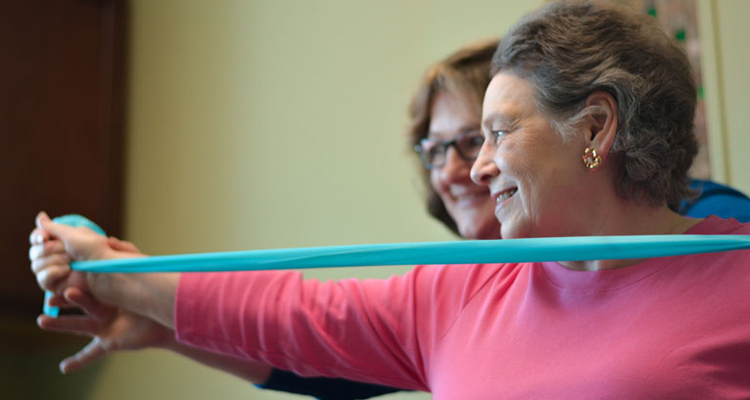Therapeutic Exercise Handbook for Women undergoing Chemotherapy for Breast Cancer

Summary
Breast cancer is the most common cancer among women worldwide and the leading cause of cancer-related deaths among women in Chile. When a patient undergoes breast cancer surgery and/or radiation therapy, there is a 20% chance that lymphedema can appear during the months or even years after treatment ends.
Lymphedema is abnormal swelling of the arm on the side where lymph nodes have been surgically removed. It is associated with risk factors such as obesity, the removal of a higher number of lymph nodes, radiation in the supraclavicular area and the use of taxane-based chemotherapy.
The kinesiological exercises shown in this handbook can improve a patient’s quality of life and prevent the appearance of lymphedema following breast cancer.
Potential Applications
The handbook will facilitate the implementation of physical therapy at Kinesiology Units located in health care/medical centers with breast pathology units, providing all breast cancer patients access to guaranteed health care to boost their quality of life and reduce the risk of appearance of lymphedema.
Development Status
Research in progress.
Advantages
- The physical therapy exercises contained in the handbook have shown scientifically validated beneficial effects in breast cancer patients.
- This kinesiological exercise program can be implemented at health care/medical institutions serving women with breast cancer in Chile and abroad.
- The aim is to generate new capacities within the kinesiology units at health centers.
Opportunities
- Kinesiological care is an integral part of the recommendations in the Clinical Practice Guide for breast cancer and is also guaranteed by Chile’s GES System (Explicit Heath Guarantees), which favors widespread application of the exercise program at health centers, in order to improve patients’ quality of life and prevent the occurrence of adverse effects and their high healthcare costs.
Intellectual Property
Underway
Research Team
- Karol Ramirez Parada, Department of Health Sciences, School of Medicine.
- César Sanchez Rojel, Department of Hemato Oncology, School of Medicine.
- Militza Petric Guajardo, Breast Pathology Unit, Sótero del Río Care Complex
